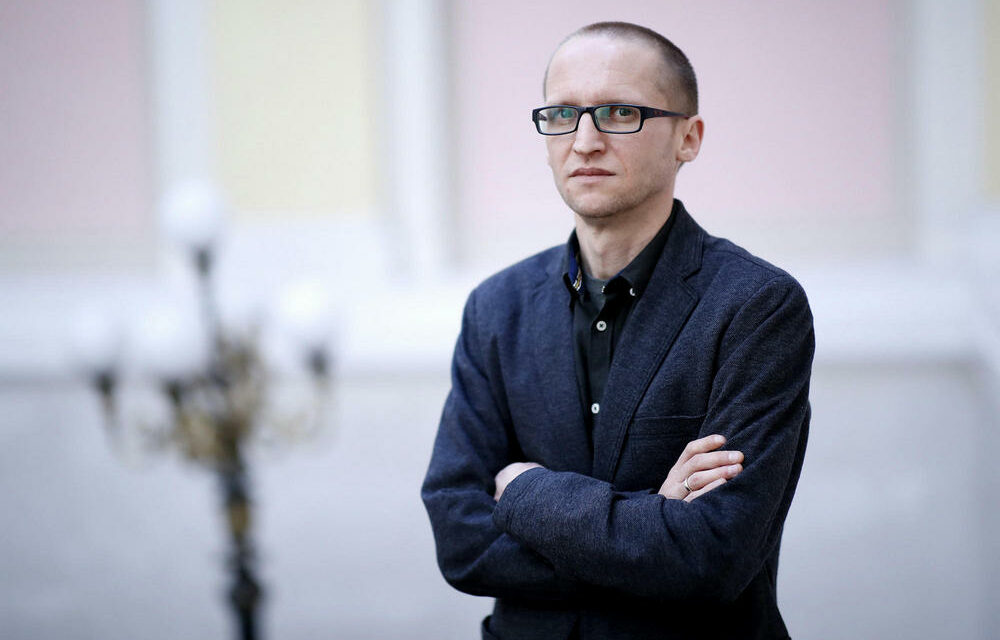"If the cultural institutional system in the countryside collapses, then we will not be talking about Hungarian culture, but about Budapest culture, and that is very important," warns Demeter Szilárd.
Mandiner asked the general director of the Petőfi Literary Museum about surviving the crisis, the value horizon of national culture, and the complicated relationship between public media and the Petőfi Cultural Agency. Rebeka Ádám's interview with Nóra.
Let's start with a relatively recent event. An article about you was published in the HVG , in which it says: "You failed your position as ministerial commissioner in the same way as most of your sources and lobbies during the fifth Orbán government." Did you fail?
It is not my duty to correct the alternative reality of HVG. Let's stick to the facts: the post of ministerial commissioner will cease to exist by virtue of the law when the mandate of the previous minister expires, so
I didn't fail anything, but a government cycle ended.
And the new minister does not have many ministerial commissioners. Based on the new government logic, they may think that the cultural government is there to solve their problems, preferably within the apparatus. According to the practice of Minister János Csák so far, he manages the expected problems due to the current crisis together with the State Secretary for Culture Péter Hoppál. For this, he invited the leaders of the cultural strategic institutions to an alliance. I was recently at a narrow informal meeting where we talked about the future, and I am also regularly present at the meetings of the National Cultural Support Management, at which we decide on cultural support. So far, I have never had the need to have such a greater influence that we are asked for our opinion on decisions that affect us. I never had power, or at least I didn't realize I had it, I wasn't even interested in that part of it. As the general director of a medium-sized museum and the chairman of the board of trustees of the Hungarian Culture Foundation, I was not given power, but tasks.
Were you contacted while writing this article?
Hvg journalist Péter Hamvay wrote a few questions to me - if I remember correctly, on Monday morning - so that I could provide the answers by Monday evening. I wrote back to him so that we could play fair. I work a lot, I barely have time to breathe. I asked you to give me a fairer deadline, then of course I will respond, as I respond to all press requests. The rest is the usual Kremlinology: he published the article treating the opinions of anonymous sources as statements of fact. The "worse than the facts" investigative journalistic practice is at least funny.
Or is it the classic Komcs pace, when they mix up the indictment with the sentence?
Never mind, let's jump.
Here is the case of Petőfi Radio and TV. Many consider Petőfi Rádió's heyday when it was transformed into a light music radio in 2007, but a few years ago a reform began , which tries to steer the "runaway radio" in a new direction. How do you evaluate the journey so far?
Until now, Petőfi TV and Radio has operated in the production and management of public media. Last year, in connection with the Petőfi bicentenary, we signed a cooperation agreement that we will develop the content together. But based on the experience of the past year, we realized that this will not work, since the Petőfi Cultural Agency and the public media operate according to two completely different logical systems.
There will always be friction, and the end result is not what we both want. Therefore, the management of the public media decided that the Petőfi Cultural Agency and the agency's company, the Petőfi Média Group, will produce the Petőfi TV and Rádió broadcasts as an external producer. What is very thought-provoking regarding the direction we should go is the NMHH's research on popular music consumption in 2021.
A comprehensive article was published on the subject . The research shows that there is currently almost no overlap between the artists and songs most often listened to on streaming platforms and the artists and songs most often played on the radio.
Exactly.
It's like two parallel worlds exist. This is certainly thought-provoking.
On the one hand, we perceive traditional media – television, radio, print media or even online portals, which still operate in a portal logic – as culture mediating tools, so we say that they have some kind of cultural carrier function. On the other hand, we accept it as true "under the auspices of the holy market" that the public makes decisions with its money. So, if what works on a market basis is what the recipient is willing to pay for, then we see that there is no correlation between cultural broadcasting - in this case, the entire Hungarian radio broadcast - and audience demand. Supply and demand do not meet. The situation is a bit paradoxical, because we can't say that radio stations should only play songs from the top stars at the moment. There still has to be a value approach. This will be a cardinal question from the point of view of Hungarian culture in the coming years.
And here's something else:
a terrible flood of crisis is coming, which can completely destroy the cultural infrastructure - especially the rural one.
The possibilities of meeting the public may be radically narrowed in the coming years. There won't be enough village days, there won't be enough country clubs or festivals where you can play. For this reason, the whole thing needs to be structurally reconsidered. In this structural rethinking, there is also a cultural policy mission, which is why I took on the management of Petőfi Rádió's issues at all. We have to decide what we accept as a lifestyle response from the outside, and what we try to confirm our own lifestyle responses to.
What example can you give of this?
This story would lead you far, but I will give an example as an indication. No one denies that there was colonialism and slavery in Africa - these are real problems, just not our problems. We had no colonies and no slaves. The fact that white-skinned people were at the top of this system is not enough common ground for us to take moral responsibility for what happened. However, we see that the BLM movement finds its own victimhood in this and tries to reproduce it.
We have nothing to do with this, but it also seeps into domestic pop culture. In the West, this politics of victimhood is already quite massive, everyone is a victim. And this is even as African-Americans now resent that trans people have taken the focus away from them. Because what happens, at least according to Dave Chapelle, is that black people struggled for hundreds of years to somehow make the equality movement a success, and here comes a couple of rich white men who suddenly feel like women, and it's all about them. These may be relevant propositions in America, but they are not interpretable according to our cultural code system.
You have to be very careful in pop culture too,
we need to know what is our subject and what is not.
In this connection, returning to the research of the NMHH : an interesting phenomenon was brought to my attention. 90 percent of the most popular artists on streaming sites come from the rap scene, a genre that has no cultural embedding in our history. This is a worldwide phenomenon that has also affected our country. The genre, however, is completely ignored by the radio stations. Should this be changed?
This is a multifaceted debate. I just came up with the idea of creating a music council made up of the great old men at the top of Hungarian popular music, and those who have already put something on the table: László Gőz, Tibusz Tátrai, Nagy Feró, Miklós Both and the others. I want to discuss such questions with them.
The question here is not which hiphopper or rapper has a place on the radio, because whoever does it well in terms of genre has a place. I admit, one of my favorite albums to date is Snoop Dogg's Doggystyle from '93. It's a thirty year old album, I don't think they've done anything as good since then, but that's just my personal opinion. Returning: this is a very delicate question. What you have to pay close attention to is when you're talking about rebellious, freedom-loving rap and when you're talking about agitprop.
We tried agitprop in the communist dictatorship, it is not good, it does not result in valuable works.
I also wrote about János Bródy on Mandiner that he had brilliant lyrics from his earlier eras with all kinds of cross-talk, but since he switched to agitprop, he lost his weight and the lyrics became crap.
Another thing that is very important is instrumental music. Let's not spare the musician from the music. With Egon Póka - God rest the master - I argued a lot about DJs, because I also wanted to support the DJ community during the covid period. He started by saying that they were electricians. Then I managed to convince you that this genre also requires knowledge, preparation, harmony-hearing, and you can't just throw different sets and loops on top of each other. Algorithms obviously help a lot, but let's try to treat this scene with its added value as well. Regardless, I deeply agree with Póka and the old-fashioned music industry actors that we should leave the soul of the artist in the music. We can't even imagine literature without a writer. This is therefore a consideration that requires several aspects.
Not to mention the cultural policy just mentioned.
Look, this is still the fourth two-thirds authorization behind the Orbán government, which means that a considerable majority of voters agree with the direction that Viktor Orbán and his government represent. The essence of representative democracy is that voters elect someone, authorize them to represent their interests and values, pay taxes, and entrust the government to decide what it spends on. From this point on, the cultural government can say what is the desirable direction for it, and cultural institutions operated with public money must follow this. What national culture is is described in the Basic Law - it contains all the values that we as a Hungarian nation consider important.
What is within that value horizon is OK, what is outside it is unconstitutional.
It is very easy to draw caesuras.
The full interview can be read HERE!
Featured image: Tibor Illyés/MTI












